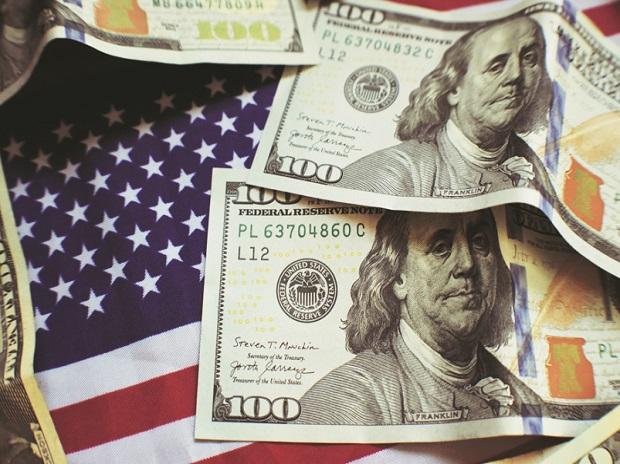Dollar dips as traders focus on rate hike prospects elsewhere

The dollar fell on Monday back towards a one-month low as traders continued to focus on the prospect of interest rate hikes and tightening outside of the United States.
Currency markets were broadly quiet at the start of the week with traders awaiting U.S. growth data and central bank meetings in the euro zone, Japan and Canada.
The dip in the greenback pulled the dollar index to a one-month low in Asian hours and extends softness after Federal Reserve Chair Jerome Powell said on Friday it not yet time to begin raising interest rates. By 0730 GMT, the index had recovered some of its losses and was last down 0.1% at 93.542.
The beneficiaries included commodity-linked currencies such as the Australian, Canadian and New Zealand dollars, which are also benefiting from the continued rally in commodity prices.
The euro was little changed at $1.1647 while the yen weakened, with the dollar rallying 0.2% to 113.66 yen.
“Support for the U.S. dollar from higher U.S. yields has been dampened so far this month both by the improvement in global investor risk sentiment, and by similar rise in yields outside of the U.S. on average in other G10 economies,” said Lee Hardman, an analyst at MUFG.
“As a result yield spreads have not moved decisively in favour of the U.S. dollar. The case for a stronger U.S. dollar is more compelling against the low yielding G10 currencies of the EUR, CHF and JPY where market participants are more comfortable that their domestic central banks will keep rates low despite higher inflation,” he added.
Powell’s remarks came as investors have priced in Fed rate hikes starting in the second half of next year and have begun to trim long dollar positions in anticipation that other central banks could get moving even sooner.
The week ahead sees Australian inflation data due on Wednesday, which is likely to set the tone for the next stage in a tussle between traders and a resolutely dovish central bank.
Soaring housing costs and rising food and fuel prices have tapering in the frame when Canada’s central bank meets on Wednesday. On Monday the Canadian dollar rose 0.2% to as high as C$1.2344 per dollar.
Thursday’s U.S. gross domestic product figures — if they show an expected slowdown — could take some pressure from the Fed even while inflation runs relatively hot.
Neither the Bank of Japan nor the European Central Bank are expected to adjust policy when they meet on Thursday, but in Europe market gauges of projected inflation are increasingly at odds with the bank’s guidance.
“President (Christine) Lagarde seems likely to push back on market agitation over an early rate rise,” said Westpac strategist Sean Callow.
Elsewhere, China’s yuan hit a five-month peak at 6.3782 per dollar, while the Turkish lira fell to a new record low in the wake of a surprise rate cut last week.
(Additional reporting by Tom Westbrook in Singapore; Editing by Peter Graff)
(Only the headline and picture of this report may have been reworked by the Business Standard staff; the rest of the content is auto-generated from a syndicated feed.)
 Dear Reader,
Dear Reader,
Business Standard has always strived hard to provide up-to-date information and commentary on developments that are of interest to you and have wider political and economic implications for the country and the world. Your encouragement and constant feedback on how to improve our offering have only made our resolve and commitment to these ideals stronger. Even during these difficult times arising out of Covid-19, we continue to remain committed to keeping you informed and updated with credible news, authoritative views and incisive commentary on topical issues of relevance.
We, however, have a request.
As we battle the economic impact of the pandemic, we need your support even more, so that we can continue to offer you more quality content. Our subscription model has seen an encouraging response from many of you, who have subscribed to our online content. More subscription to our online content can only help us achieve the goals of offering you even better and more relevant content. We believe in free, fair and credible journalism. Your support through more subscriptions can help us practise the journalism to which we are committed.
Support quality journalism and subscribe to Business Standard.
Digital Editor
business-standard.com

